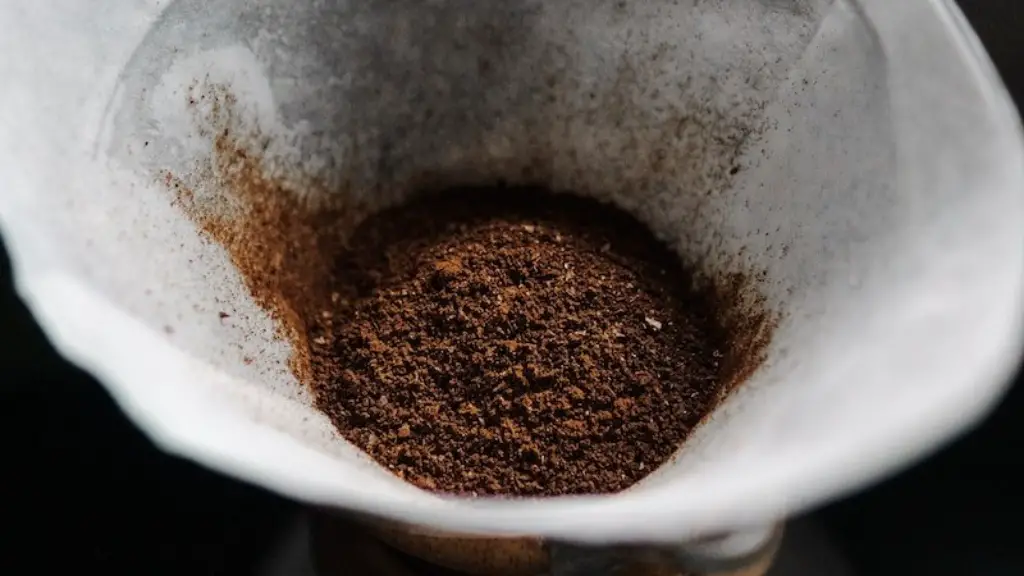Coffee is one of the world’s most beloved beverages. Aside from the obvious benefits associated with caffeine, coffee is also packed with antioxidants that offer an array of health benefits. But one of the most common questions is – Does drinking coffee raise blood sugar? This article will explore the effects of coffee on blood sugar, summarizing the available evidence while providing our own insights and analysis.
Let’s first consider the evidence from research. A 2015 review of the scientific literature concluded that coffee consumption may slightly raise blood sugar levels, but only slightly. The same review noted that the observed effects may be due to the fact that coffee often contains sugar or sugar-based syrups. In other words, it may not be the coffee itself that is responsible for any observed increase in blood sugar.
However, this is not to say that coffee consumption has no effect on blood sugar levels. Recent research suggests that coffee consumption can cause an acute rise in blood sugar levels, but this increase is transient and does not persist long-term. In addition, some research suggests that the increase in blood sugar levels seen with coffee consumption may be slightly lower than that seen with sugary beverages or snacks. In other words, the occasional cup of coffee may not cause a dramatic increase in blood sugar levels.
It is also important to note that the effects of coffee on blood sugar vary depending on the individual. Some people may experience a much greater increase in blood sugar levels from drinking coffee than others. Meanwhile, some research suggests that caffeine may also have an effect on blood sugar levels in the absence of added sugar.
From the available evidence it is evident that the effects of coffee on blood sugar are variable, but overall quite moderate. Even those with diabetes may be able to enjoy the occasional cup of coffee without an excessive increase in blood sugar levels. It is worth noting, however, that this is not a universal truth; some people may experience more significant effects.
With that said, our overarching conclusion is that coffee may have a small, transient effect on blood sugar levels, but this is far from certain. The individual variation in response makes it impossible to draw a universal conclusion about coffee and blood sugar. Furthermore, the effects may be compounded or accentuated if coffee is consumed with added sugar. As such, it is best to consider both the effects of coffee and the effects of added sugar when considering the effect of coffee on blood sugar.
What are the Implications of Coffee on Blood Sugar?
The research into coffee’s effects on blood sugar is still very much in its infancy. While we have discussed some of the implications for coffee drinkers, the wider implications are still largely unknown. For instance, it is still unclear how the potential effects of coffee on blood sugar levels might affect overall health outcomes, such as the risk of diabetes and cardiovascular disease.
It is also worth noting that there is still much more to learn about the potential effects of coffee on blood sugar. While the existing research has revealed some modest effects, it is important to remember that much of the research has been observational in nature and thus, the observed associations cannot necessarily be interpreted as causal. It is only through further research that the true effects of coffee on blood sugar will become evident.
Overall, while it is clear that coffee may have a slight transient effect on blood sugar levels, the exact implications are still unclear. It is therefore important to limit any assumptions until further research is conducted.
Other Factors that Affect Blood Sugar
In addition to considering the effects of coffee on blood sugar, it is also important to consider other factors that may affect blood sugar levels. This is particularly important for those with diabetes or at risk of developing diabetes. Such factors include food choices, physical activity levels, and lifestyle habits.
The types of food you eat can have a major effect on blood sugar levels. For instance, a diet high in refined carbohydrates such as white bread, pasta, and pastries can cause a large spike in blood sugar levels. On the other hand, a diet high in fiber and protein can help to maintain steady blood sugar levels. Overall, diet is a major factor to consider when thinking about how to regulate your blood sugar.
Physical activity is also important for blood sugar regulation. Exercise can help to lower blood sugar levels, especially if it is performed alongside a healthy diet. A lack of physical activity can cause blood sugar levels to remain elevated and may even contribute to the development of diabetes and other chronic diseases.
Finally, lifestyle factors such as sleep and stress also have an effect on blood sugar levels. Poor sleep and high stress levels have both been associated with elevated blood sugar levels. Thus, it is important to maintain a healthy, balanced lifestyle in order to keep blood sugar levels within a healthy range.
Conclusion
In conclusion, the evidence is still inconclusive about coffee’s effect on blood sugar levels. While some research suggests that coffee may have a slight transient effect, the exact effect is still unknown. Furthermore, individual variation means that it is impossible to draw a universal conclusion. It is therefore important to consider other factors such as diet and physical activity when considering the effect of coffee on blood sugar.
How to Reduce Coffee’s Effects on Blood Sugar
There are several steps that can be taken to reduce the potential effects of coffee on blood sugar levels. First, it is important to consider the type of coffee you are consuming. Some coffee drinks – particularly those made with milk or other dairy products and added sugar – can cause a dramatic increase in blood sugar levels. On the other hand, plain black coffee with no added ingredients will generally have only a small effect on blood sugar levels.
It is also important to consider how much coffee you are consuming. While the occasional cup of coffee may not have an excessive effect, regular or excessive coffee consumption may cause a more significant increase in blood sugar levels. As such, it is important to limit coffee intake to one or two cups per day in order to avoid potential negative effects on blood sugar levels.
Finally, it is important to consider the timing of coffee consumption. Consuming coffee during or just before meals can lead to a dramatic increase in blood sugar levels. On the other hand, limiting coffee intake to larger, more spaced-out intervals can help to maintain steady blood sugar levels.
What is the Bottom Line?
The evidence clearly demonstrates that the effects of coffee on blood sugar levels are variable. While some people may experience a dramatic increase in blood sugar levels, others may find that coffee consumption has no effect on blood sugar. As such, it is important to evaluate your own individual response before determining whether coffee consumption is suitable for you.
Furthermore, it is important to consider the other factors mentioned in this article when considering the effects of coffee on blood sugar. Diet, physical activity, and lifestyle habits all play a role in regulating blood sugar levels. Thus, it is important not to focus solely on coffee consumption when considering your overall health.
What are the Alternatives to Coffee?
If you’re looking to reduce the effects of coffee on blood sugar, consider some caffeine-free alternatives. There are plenty of drinks that can provide a similar energizing effect without the risk of raising blood sugar levels. Some popular alternatives to coffee include: matcha tea, green tea, and yerba mate.
Other options to consider include herbal teas such as chamomile or rooibos. These teas are naturally caffeine-free and offer a wealth of health benefits in addition to not affecting blood sugar levels. Similarly, many fruit-based drinks or smoothies can provide an energizing effect without the need for added sugar or caffeine.
Finally, for those who are looking for a more natural, energy-boosting option, consider nutrient-dense snacks such as nuts, seeds, and fresh fruit. These can provide a sustained energy boost without the risk of affecting blood sugar levels.
Conclusion
Overall, it is clear that the effects of coffee on blood sugar are variable and somewhat unpredictable. While some research suggests that coffee may have a slight transient effect on blood sugar levels, it is important to consider other factors such as diet and physical activity when considering its effect on health. Furthermore, there are plenty of alternatives to consider if you’re looking to reduce the potential effects of coffee on blood sugar.





